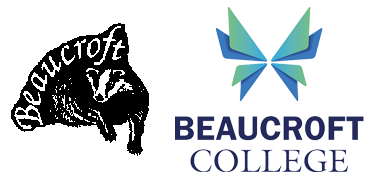At Beaucroft, Computing is not taught as a discreet subject. The Computing Curriculum is explored through a broad range of subjects across the school.
National Curriculum: Programmes of Study
Pupils should be taught to:
- understand what algorithms are, how they are implemented as programs on digital devices, and that programs execute by following precise and unambiguous instructions
- create and debug simple programs
- use logical reasoning to predict the behaviour of simple programs
- use technology purposefully to create, organise, store, manipulate and retrieve digital content
- recognise common uses of information technology beyond school
- use technology safely and respectfully, keeping personal information private; identify where to go for help and support when they have concerns about content or contact on the internet or other online technologies
Computing Terms & Language
Algorithm
An algorithm is a step by step method of solving a problem or completing a task.
Debugging
This is the process of finding a mistake in our algorithm that will stop us from successfully completing the task.
Logical Reasoning
Logical reasoning determines if algorithms will work by predicting what happens when the algorithm’s steps – and the rules they consist of – are followed.
Practising Computing Concepts: Food Tech – Making Toast
Here is an example of how you may see Computing taught at Beaucroft School:
Algorithm
Follow a sequence of instructions to make toast – at what stage do I add butter to my toast? Do I prefer to add jam or chocolate spread to my toast?
Debugging
Why is my bread not toasted? Did I click the toaster on properly?
Logical Reasoning
If I put the butter on top of the jam, will I still like the toast?
Additional Computing Goals
Create, organise, store, manipulate and retrieve digital content
- Deleting unwanted photos and videos on iPads and cameras.
- Sharing photos and videos from outings.
- Searching for images and videos of topics/high interest subjects online using a web browser.
- Logging in to software, such as Busythings.
Practising common uses of information technology beyond school
- Using microwaves, toasters, fridges, ovens and dishwashers.
- Using lifts and escalators.
- Travelling on minibuses, buses, taxis, cars, trains, planes and boats.
- Using remote controls and tablets.
- Using pedestrian crossings appropriately.
